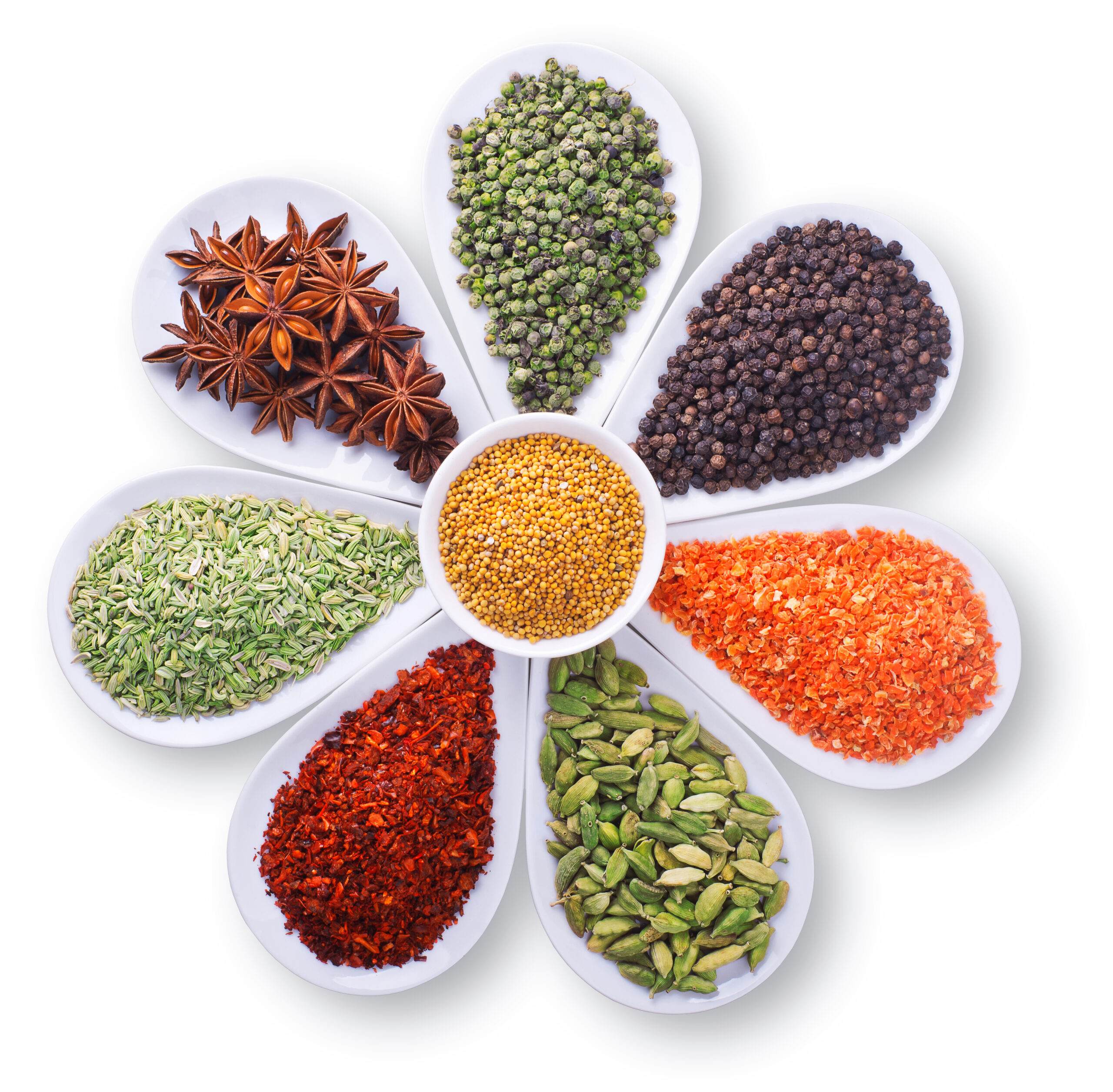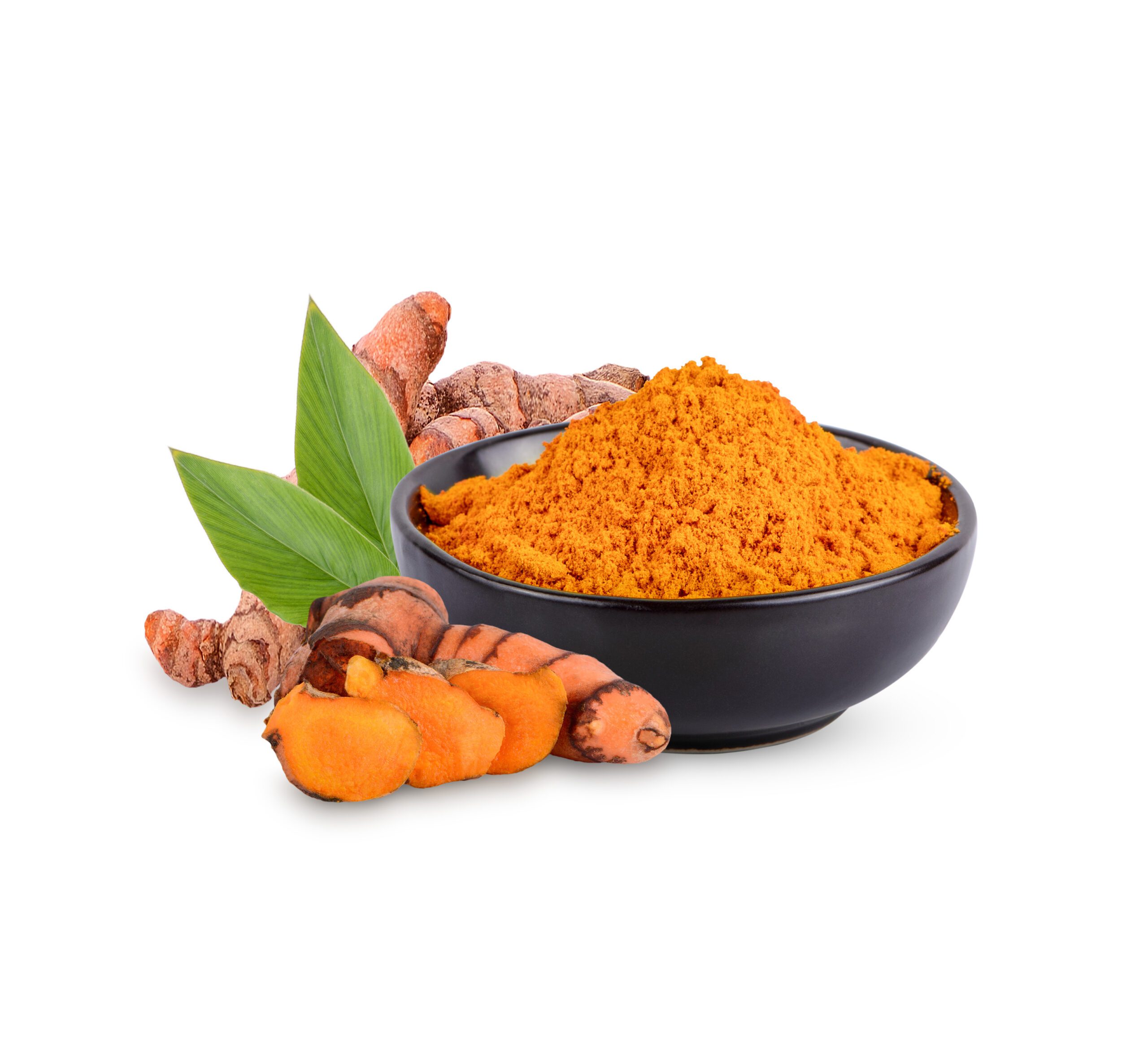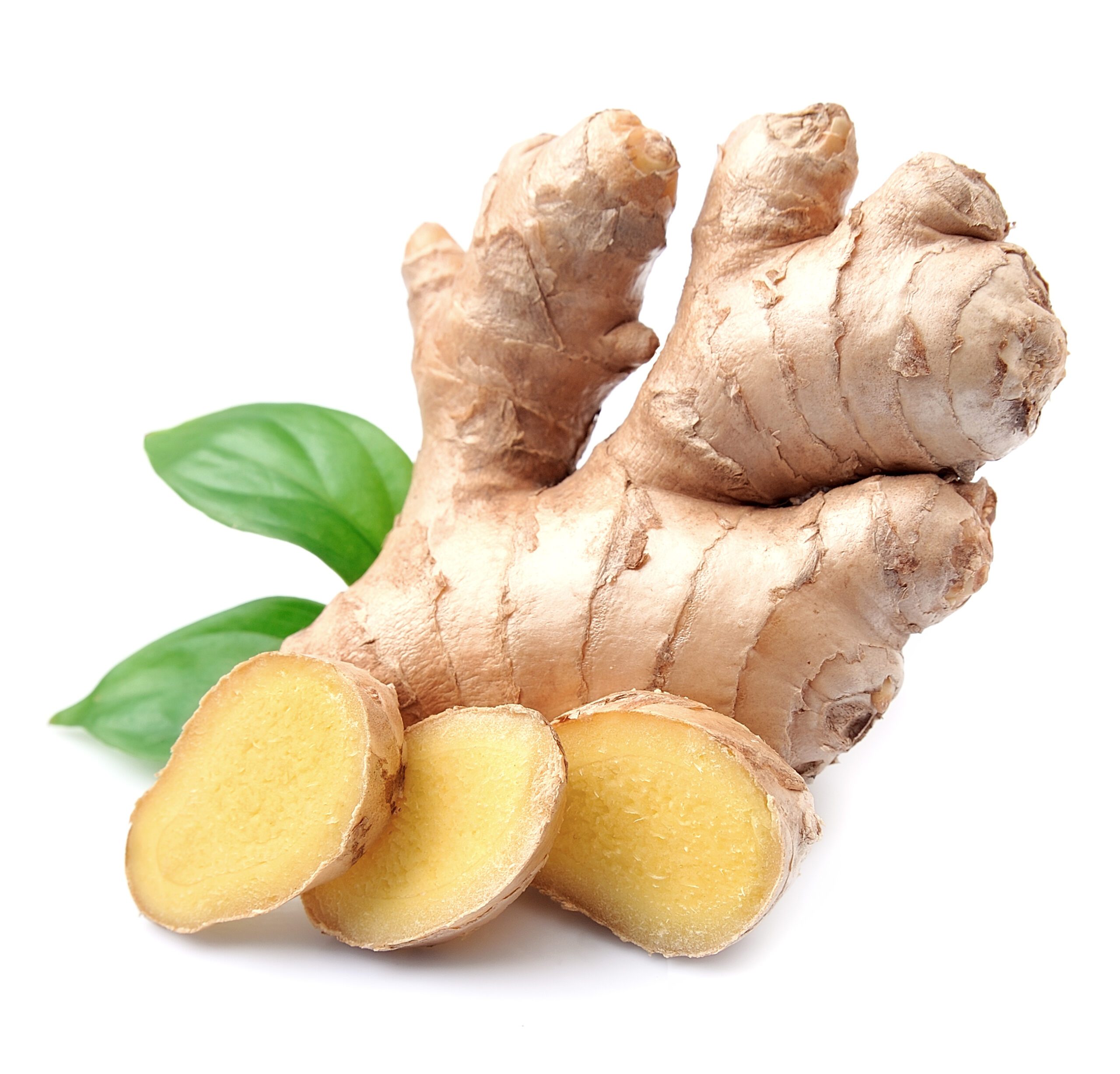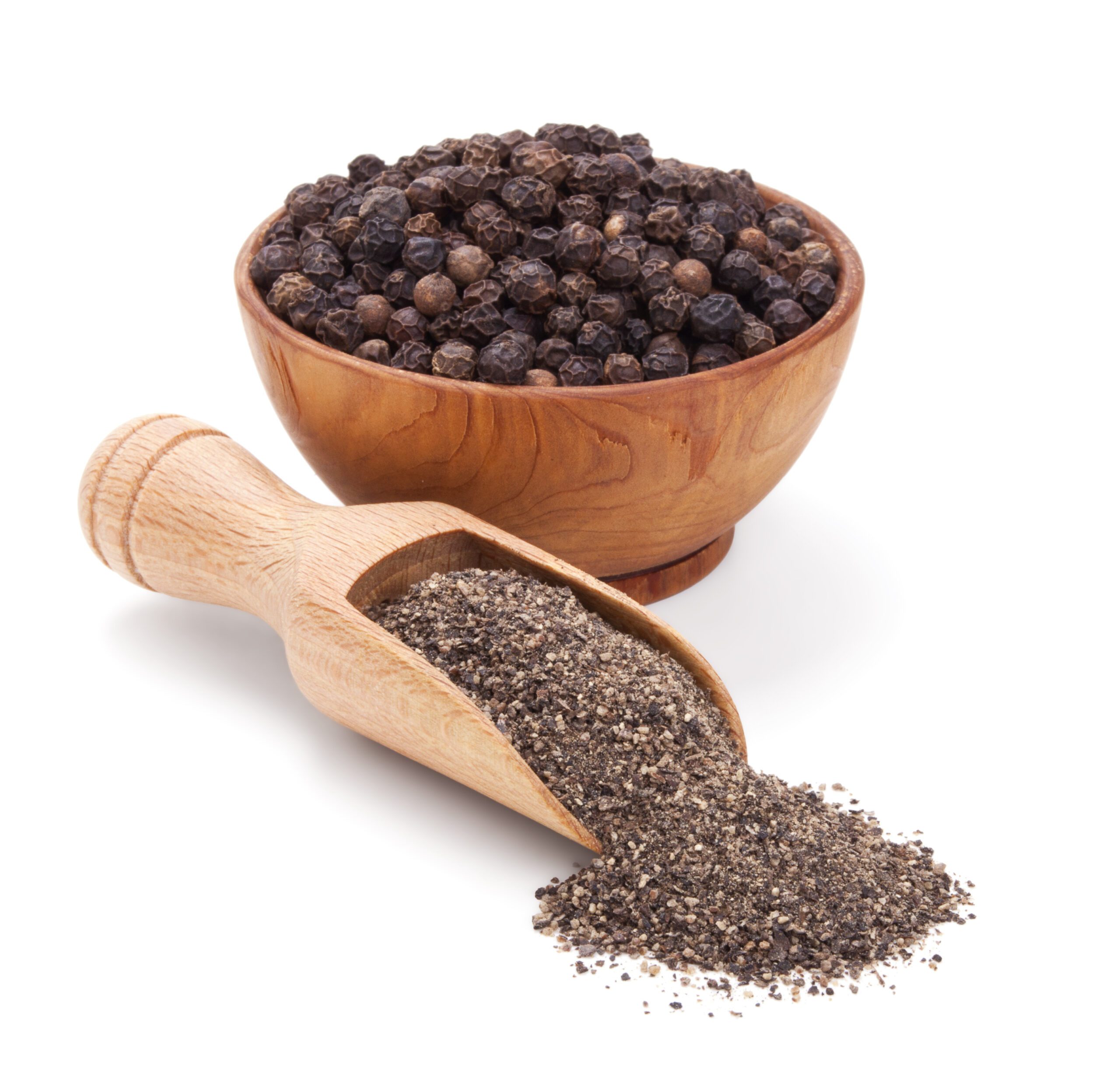Spice It Up: How Adding Spice Can Aid in Weight Loss
December 28, 2023
 696
696 
In the vibrant world of culinary delights, spices do more than just enhance flavor – they might be your unexpected allies in the journey of weight loss.
Often tucked away in our kitchen cabinets, these potent little wonders are not just about adding a kick to our meals; they carry within them the potential to rev up our metabolism and assist in the quest for a healthier weight.
The magic of spices lies not only in their ability to transform a dish but also in their capacity to influence our body’s metabolic processes.
The idea of using spices for weight loss is rooted in a blend of ancient wisdom and modern science.
For centuries, various cultures have harnessed the power of spices for medicinal purposes, and today, scientific research is beginning to uncover just how these flavorsome bits can play a role in weight management.
From the heat of chili peppers to the sweet warmth of cinnamon, certain spices are being recognized for their thermogenic properties – the ability to generate heat in the body, which in turn boosts metabolism and enhances the burning of calories.
But the benefits don’t stop at metabolism.
These culinary heroes are also known for their roles in appetite regulation, fat burning, and even improving insulin sensitivity.
Each spice comes with its unique profile of phytochemicals and compounds that can contribute to various aspects of metabolic health.
As we dive into the spicy secrets of weight loss, prepare to be amazed by how these everyday ingredients can be powerful tools in your weight loss arsenal.
It’s time to spice up your diet, not just for the tantalizing flavors, but for a boost in your weight loss journey as well.

The journey to weight loss is often paved with misconceptions and oversimplified advice.
However, when it comes to spices and their role in weight management, there’s compelling science at play.
Understanding how certain spices can positively influence metabolism and fat burning requires a dive into the fascinating world of thermogenesis and metabolic function.
Metabolism, in its simplest definition, is the process by which our body converts food into energy.
It’s a complex orchestra of chemical reactions that keep us alive and functioning.
Some spices have the unique ability to enhance this metabolic process, leading to an increased rate of calorie burning.
This is where the term ‘thermogenic effect’ comes into play.
Thermogenesis refers to the process of heat production in organisms.
Certain spices can stimulate this process, effectively turning up the internal heat of the body. As the body works to cool itself down, it burns calories, thus increasing the metabolic rate.
This effect, while subtle, can contribute to weight loss over time, especially when combined with a healthy diet and regular exercise.
Beyond just increasing the metabolic rate, some spices also play a role in fat burning and appetite regulation.
For instance, certain compounds found in spices can interact with receptors in the digestive system, signaling the feeling of fullness or satiety.
This can help in reducing overall calorie intake by curbing the urge to overeat.
Furthermore, some spices are known to influence the breakdown of fat cells, aiding in the reduction of fat storage in the body.
They can stimulate the activity of enzymes that metabolize fats and sugars, thereby improving the body’s ability to use these macronutrients more efficiently.
The beauty of incorporating spices into a weight loss regimen lies not just in their metabolic benefits but also in their ability to add flavor without extra calories.
This can make healthier, lower-calorie foods more palatable, encouraging better dietary choices without the feeling of deprivation.
In the next sections, we’ll explore some specific spices known for their thermogenic properties and other metabolic benefits.
From the fiery kick of chili peppers to the sweet subtlety of cinnamon, these spices are more than just culinary enhancers – they’re potential game-changers in your weight loss journey.
In the realm of spices, certain standouts have garnered attention for their roles in boosting metabolism and aiding in weight loss.
Let’s zoom in on two such spices and unravel the science behind their impact.

The Fiery Component of Chili Peppers
Capsaicin, the compound that gives chili peppers their characteristic heat, is more than just a flavor enhancer – it’s a metabolic powerhouse.
Studies have shown that capsaicin can significantly boost metabolic rate, thereby increasing calorie burning.
One such study, published in the American Journal of Clinical Nutrition, revealed that the consumption of capsaicin led to an increase in energy expenditure and enhanced fat oxidation.
The magic of capsaicin lies in its ability to induce thermogenesis. When consumed, it raises the body’s temperature, triggering a cooling response.
This process requires energy, and as a result, the body burns calories.
Capsaicin’s impact on weight management extends beyond just thermogenesis.
Research indicates that it can also reduce appetite and decrease overall calorie intake, making it a potent ally in the fight against excess weight.

A Sweet Spice with a Healthful Twist
Cinnamon, a spice revered for its sweet and warm flavor, harbors secret benefits for those looking to manage their weight.
One of its most significant advantages lies in its ability to regulate blood sugar levels.
This regulation is crucial in weight control, as stable blood sugar levels can help prevent cravings and overeating.
Research published in the Journal of Medicinal Food suggests that cinnamon can reduce blood sugar levels and improve insulin sensitivity.
By enhancing insulin’s effectiveness, cinnamon helps in managing the body’s use of glucose and fat storage.
This effect not only aids in controlling appetite but also ensures that the body utilizes sugars and fats more efficiently, rather than storing them as body fat.
Additionally, cinnamon has been found to have a direct impact on reducing cravings.
By stabilizing blood sugar levels, it helps in minimizing the spikes and crashes that often lead to hunger pangs and a desire for sugary snacks.
Incorporating cinnamon into your diet can be a simple yet effective strategy to maintain a healthy balance of energy intake and expenditure.

Turmeric: A Golden Spice with Weight Loss Benefits
Turmeric, the golden spice renowned in traditional medicine, owes much of its health benefits to curcumin, its active compound.
Curcumin is celebrated not only for its anti-inflammatory properties but also for its role in enhancing metabolic health, which indirectly contributes to weight loss.
Inflammation is often a silent contributor to weight gain and obesity-related issues. Curcumin helps by reducing inflammation in the body, thus supporting overall metabolic health.
This reduction in inflammation can also improve insulin sensitivity, which is crucial for regulating blood sugar levels and preventing excessive fat storage.
A study published in the journal Nutrition highlighted that curcumin intake was associated with a significant reduction in BMI and weight in individuals with metabolic syndrome.
Furthermore, research in the European Journal of Nutrition found that curcumin could positively affect the factors associated with obesity, such as inflammation markers and insulin resistance.
The impact of turmeric and curcumin extends beyond just addressing inflammation; they also play a role in enhancing the body’s ability to burn fat. T
his makes turmeric a valuable addition to a weight loss diet, offering a natural way to support metabolic health and combat obesity-related issues.

Ginger: Spicing Up Digestion and Weight Control
Ginger, a spice known for its distinct zesty flavor, is also a powerful player in the world of digestive health and weight management.
Its benefits in enhancing digestive efficiency are not just folklore; they are backed by scientific research.
Ginger’s role in digestive health is crucial for weight loss.
It helps in stimulating the body’s digestive enzymes, enhancing the breakdown and absorption of nutrients.
Efficient digestion is key in preventing bloating and ensuring that the body utilizes food effectively rather than storing it as fat.
Studies have also shown that ginger can have a significant impact on satiety and calorie absorption.
A research study in the journal Metabolism revealed that ginger consumption increased the thermic effect of food and promoted feelings of satiety, reducing the overall calorie intake.
Another study in the European Journal of Nutrition demonstrated ginger’s potential in enhancing calorie burn and reducing feelings of hunger, making it a valuable addition to any weight loss regimen.
Ginger not only enhances the flavor of meals but also contributes to a more efficient and healthy digestive system, supporting weight loss in a holistic and natural manner.

Black Pepper: More Than Just a Seasoning
Black pepper, a staple in kitchens worldwide, contains a potent compound called piperine, which is not only responsible for its pungent flavor but also plays a significant role in weight management and metabolic health.
Piperine has been shown to enhance metabolic performance by increasing the thermogenic activity in the body, similar to the effects of capsaicin.
This increase in thermogenesis leads to more calories being burned, aiding in weight loss. M
oreover, piperine has been found to interfere with the formation of new fat cells, a process known as adipogenesis, making it a valuable ally in the fight against fat accumulation.
A study published in the Journal of Agricultural and Food Chemistry found that piperine in black pepper could significantly reduce fat levels in the bloodstream and enhance the metabolism of lipids.
Another interesting aspect of piperine is its ability to enhance the bioavailability of other beneficial compounds, such as curcumin, thereby amplifying their effects.
Incorporating black pepper into your diet is not only easy but also can add a flavorful and healthful twist to your meals, contributing to improved metabolic health and weight loss efforts.

As we wrap up our flavorful journey into the world of spices and their role in weight loss, it’s clear that these kitchen staples are more than just taste enhancers.
Each spice we’ve explored – from the fiery capsaicin in chili peppers to the pungent piperine in black pepper – brings with it a unique set of properties that can aid in our quest for a healthier weight and improved metabolic health.
Capsaicin ignites our metabolism and burns calories, cinnamon stabilizes blood sugar levels to control cravings, turmeric’s curcumin reduces inflammation aiding in metabolic health, ginger improves digestive efficiency and promotes satiety, and black pepper’s piperine enhances fat metabolism and nutrient absorption.
These spices, often overlooked, are powerful tools that can subtly yet effectively contribute to weight loss.
The addition of these spices to your diet offers a dual benefit.
Not only do they assist in your weight management goals, but they also enrich your meals with delightful flavors, making healthy eating a more enjoyable experience.
This natural approach to weight loss is not just about counting calories or restrictive diets; it’s about enhancing the nutritional profile of your food in a way that also satisfies your palate.
I encourage you to explore the use of these spices in your daily cooking.
Experiment with flavors, enjoy the richness they bring to your meals, and embrace their health benefits.
Remember, the journey to weight loss can be as flavorful as it is fulfilling.
Let these spices be your companions as you embark on a healthier, more vibrant path to wellness.
References:

A new study suggests that a widely used sugar substitute found in diet sodas, chewing gum, and low-sugar yogurt may elevate insulin levels. This could increase the long-term risk of heart disease. “Artificial sweeteners have infiltrated nearly all types of food, making it crucial to understand their long-term health effects,” said Yihai Cao, senior author […]

Diet Coke has long been a fan-favorite among soda lovers who want a fizzy, guilt-free alternative to traditional soft drinks. While its zero-calorie, zero-sugar label makes it seem like a healthier option, the reality is far more concerning. Despite its undeniable popularity, Diet Coke’s nutritional profile has raised red flags among health experts for years. […]

New study shows that embracing an anti-inflammatory, plant-forward diet can support cognitive function and help reduce the risk of dementia. What You Eat Shapes Your Brain The food you eat doesn’t just impact your body—it also affects your brain. Research suggests that eating an anti-inflammatory, plant-based diet can help improve memory, focus, and overall brain […]